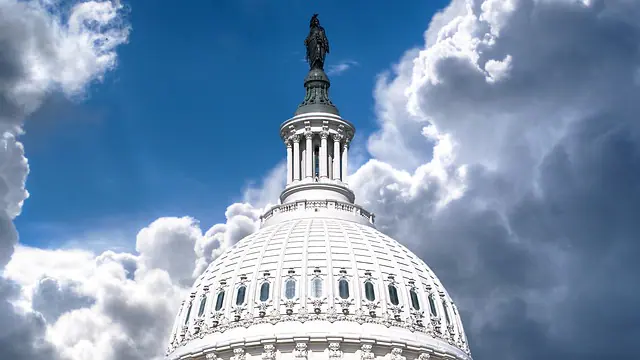[TL:DR]
Momentum is building for a ban on stock trading by members of Congress, fueled by bipartisan proposals and support from the Trump administration, which has prioritized transparency. Past scandals and public outrage over potential insider trading have driven calls for reform, but similar efforts in the past have stalled.
Advocates hope that Trump’s backing will break the legislative deadlock, though skeptics warn that Congress has a history of avoiding reforms that affect its own perks. Success could rebuild trust in government; failure risks deepening public cynicism.
The long-debated idea of banning stock trading by members of Congress is back in the spotlight, this time with renewed vigor under the Trump administration. Advocates of the ban believe this may finally be the moment when rhetoric turns into action, thanks to a perfect storm of public pressure, bipartisan cooperation, and a new administration that has promised a focus on transparency.
For years, the public has been calling for stricter rules to prevent lawmakers from personally profiting from their inside knowledge. Scandals that emerged during the COVID-19 pandemic only amplified these demands, as high-profile federal investigations into congressional stock trades raised eyebrows—and questions—about whether lawmakers were using their positions for personal gain.
Despite repeated outcries and polling that shows Americans across the political spectrum overwhelmingly support such a ban, Congress has, time and again, failed to deliver.
But this time might be different. Representative Zach Nunn, a Republican from Iowa, has teamed up with Democrat Marie Gluesenkamp Perez to introduce a bipartisan proposal that could finally gain traction. Nunn emphasized that the administration’s vocal support for accountability and ethical governance provides a critical boost to their efforts. And he’s not alone in his optimism.
Representative Seth Magaziner, a Democrat from Rhode Island, described Trump’s backing as a potential game-changer. “This could be the moment we’ve all been waiting for,” Magaziner said, noting that having a president who prioritizes transparency could be key to breaking the legislative logjam.
But let’s not get too excited just yet. History is littered with examples of such proposals dying on the vine. In the summer of 2024, a bipartisan Senate committee advanced a bill to ban congressional stock trading, but it never made it to a vote. Even in the 117th Congress, when then-Speaker Nancy Pelosi pledged to bring similar legislation to the House floor, nothing materialized. There’s a pattern here: lawmakers seem to agree in principle that they should not trade stocks—but not enough to actually change the rules.
Adding to the intrigue, former President Joe Biden also threw his weight behind a stock trading ban in December 2024, declaring that “Nobody in the Congress should be able to make money in the stock market while they’re in the Congress.” Unfortunately for reformers, Biden’s support came as his term was winding down, limiting its practical impact.
So what makes this moment any different? For one, the political winds may have shifted. Trump’s alignment with transparency advocates offers a rare opportunity for bipartisan agreement on a hot-button issue. Additionally, high-profile advocates like Nunn and Magaziner are working hard to build coalitions across party lines, proposing concrete measures like blind trusts for lawmakers, their spouses, and dependent children.
These provisions could address long-standing concerns about conflicts of interest while still allowing legislators to participate in the broader economy without suspicion.
Still, skeptics might wonder whether this renewed push is yet another case of “all talk, no action.” Congress has long had a reputation for dodging reform efforts that would require members to sacrifice personal perks. But with Trump now on record as supporting a ban—and with public trust in government at historic lows—lawmakers might find it politically untenable to continue dragging their feet.
The stakes couldn’t be higher. Trust in Congress hinges on the belief that elected officials are there to serve their constituents, not themselves. If this effort fails, it could further erode confidence in a government already viewed by many as out of touch.
But if it succeeds, it would send a powerful message: Congress is willing to hold itself to the same standards it often preaches for others.




